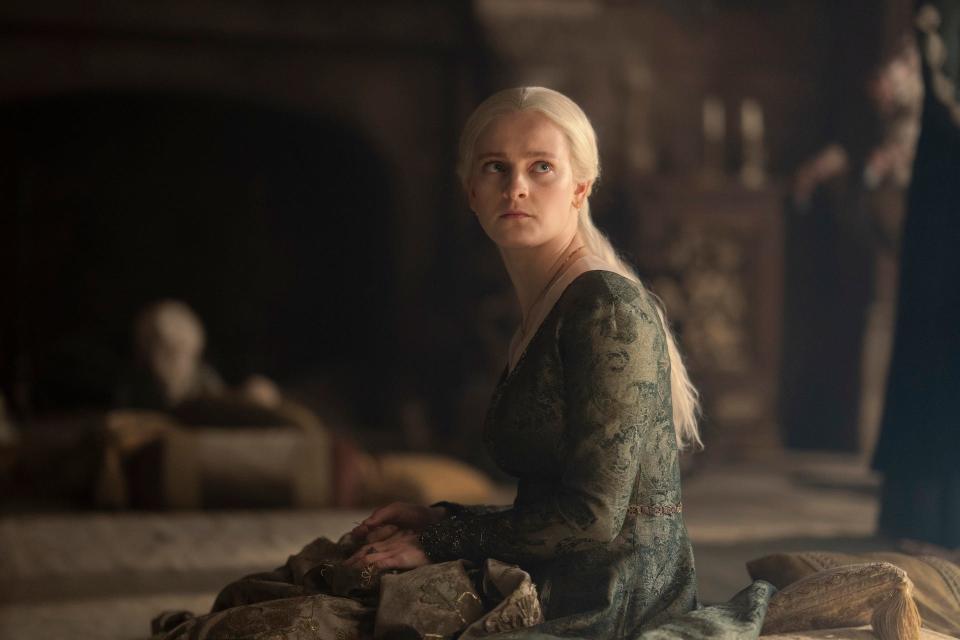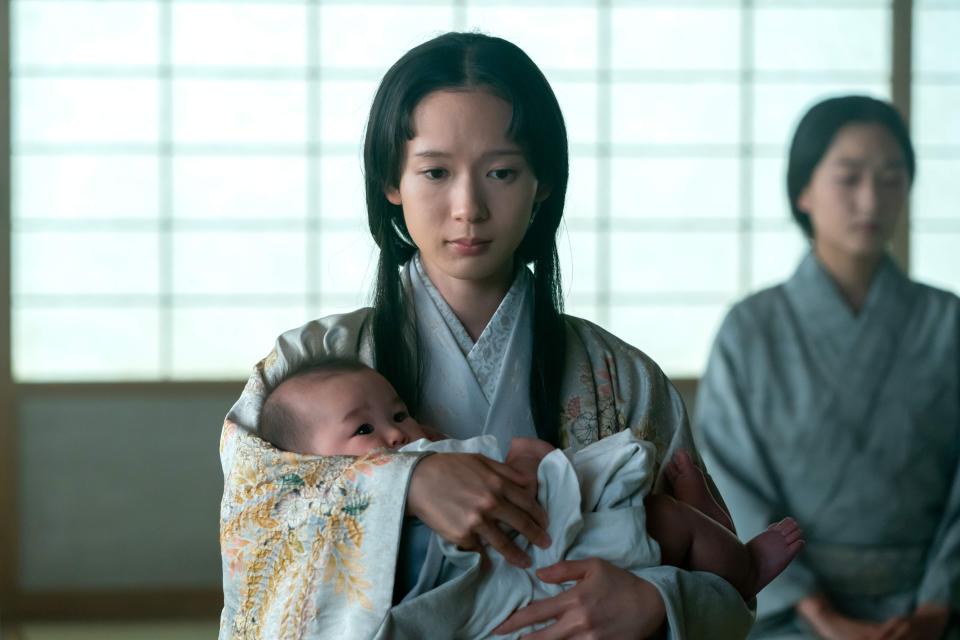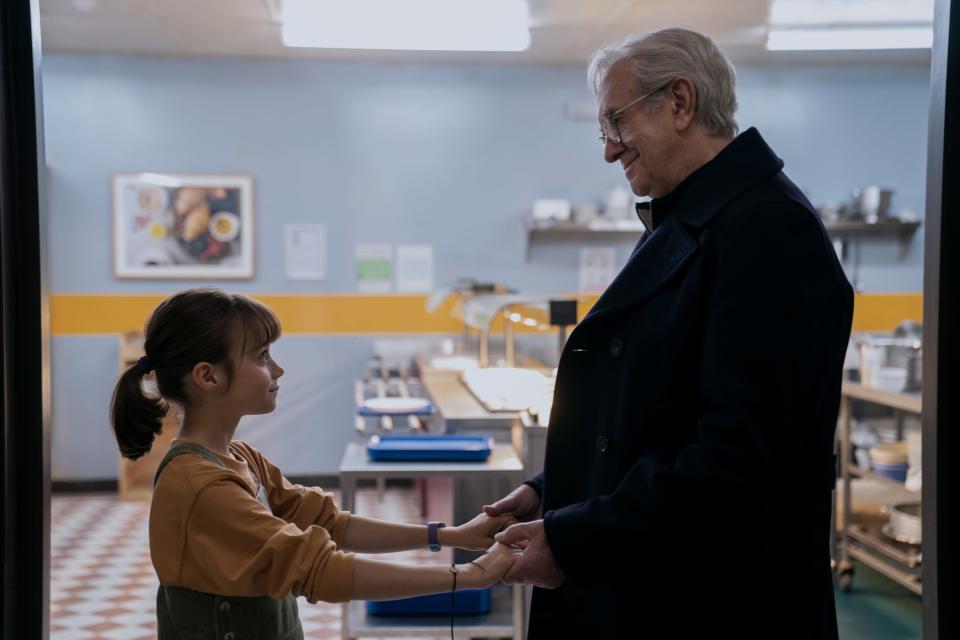Spoilers: Why that 'House of the Dragon' murder went too far
Spoiler alert! The following contains details from the Season 2 premiere of "House of the Dragon."
I didn't sign up for this.
HBO's "House of the Dragon" returned for Season 2 on Sunday with a premiere episode that had all the hallmarks of stories in the deadly and brutal Westerosi world. Loyalties were tested, wars were planned and people died. Rhaneyra (Emma D'Arcy) plotted against her half brother Aegon (Tom Glynn-Carney), while they both claimed to be the reigning monarch. Just another day in the neighborhood when you live with dragons.
Join our Watch Party! Sign up to receive USA TODAY's movie and TV recommendations right in your inbox

Except no, not really. The final moments of "Dragon" are spent on scenes of hapless and idiotic assassins dispatched by Daemon Targaryen (Matt Smith) trying to kill his nephew/brother-in-law Aemond (Ewan Mitchell), who in turn killed Daemon's stepson Lucerys Targaryen (Elliot Grihault) in the Season 1 finale (Aemond's own nephew, just to keep this incestuous family even more confusing).
But those assassins didn't kill a fully grown man with silver hair and an eyepatch as Daemon instructed. Instead, after wandering around an empty castle (all those guards and ladies-in-waiting seemingly evaporated when the plot needed them to), the assassins decide they'll just kill another "son" of this tribe of Targaryens instead. They capture Aegon's wife/sister Helaena (Phia Saban) in her twin toddlers' nursery. Tell them which of the twins is the prince and heir, they say, or they will kill both children and the mother.
Helaena points at her son and scurries away with her daughter. The assassins then behead the child, and while it happens off screen, his small cries and squelching and sawing sound effects are loudly heard.
Children die all the time in "Dragon" and "Thrones," right? And don't forget "Shogun." Why is this different?
Thirteen years since "Thrones" debuted and introduced this world of brutality onto our screeners, the world of Westeros has finally gone too far.
The scene in "Dragon" didn't have to be that bad. The death could have occurred further off-screen. The "Sophie's Choice" element could have been removed. The assassins could have come up against any level of resistance to add in-universe logic back to the script. The child could have been older. But the "Dragon" writers went for shock over sense, feeling or substance.
"House" joins an unhappy club this year with FX's "Shogun," an adaptation of the James Clavell novel that takes place in 17th-century Japan. In the first episode of that series, a man pledges to die by seppuku and kill himself after he has disgraced his honor. He also commits to "end his line," meaning his infant son must also die in the ceremony. In that series, we see a broken down mother holding her baby moments before he is taken to his death.

The baby death in "Shogun" was shocking and distressing, but at the very least was done entirely off camera (silently) and spoke to the greater themes and emotions of "Shogun." It was a way to establish the foundational importance of honor in this society, one that has deadly and far-reaching costs.
What's the point in "Dragon"? Having seen four of the eight episodes to review them, I can tell you, yes, this death becomes paramountly important to the plot. But the randomness of it, the logical fallacies required for it to happen and the unnecessarily graphic sounds make it feel far more egregious than any part of "Shogun." What's the point of art if it doesn't make us feel something? "Shogun" made me feel dismay and horror, sure, but "House" just gave me nausea.
Modern TV is filled with pointless savagery
In a world with hundreds of TV shows and dozens of networks, channels and streamers to choose from, TV series often go big to stand out. Sometimes that means big special effects and glitzy costumes and A-list celebrities. And sometimes that means big violence and shocking content.
Some of our most celebrated modern shows are full of barbarism and continual bloodshed. Showtime's "Yellowjackets" strands teenage girls in the wilderness where starvation turns them to cannabalism. "The Handmaid's Tale" has tortured Elisabeth Moss's June more times than you can count. Netflix's "3 Body Problem" sliced an oil tanker full of hundreds of families and children in a half-cocked plan to save the world from a theoretical alien invasion.

When this violence serves a purpose greater than shock and awe, it makes sense. "Body" is about sacrificing now to save those in the future. "Yellowjackets" dares to ask how far one would go to survive. But "Handmaid's" has seemingly run out of story ideas that don't involve physical and emotional pain.
Now I can feel the naysayers whipping out their keyboards telling me I'm a wimp, I shouldn't watch these shows and that I'm bad at my job as a TV critic for daring to be affected and offended by the death of children, however fictional it may be. Go ahead, insult me for my humanity. I dare you.
This kind of violence is painful for the characters and painful for the viewers. There's a reason our entertainment shows don't regular show the murder of children and babies week to week. It's reprehensible. It's disturbing. It's indecent. TV is meant to be about escapism, and we hear about the deaths of children in the real news constantly. We shouldn't have to be assaulted with it when trying to relax.
It's no coincidence that arbitrary violence on TV this goes hand in hand with bad writing. When you don't have deeper, more thoughtful ideas for your story, it is easy and lazy to fall back on cruelty for cruelty's sake. Show blood and maybe your audience will forget there is no substantive story behind it.
But I'm not forgetting.
This article originally appeared on USA TODAY: 'House of the Dragon' Season 2 Premiere review


